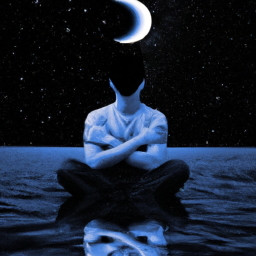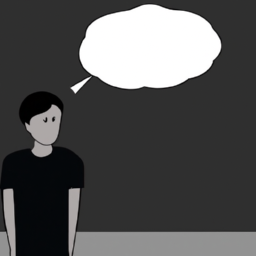I have always been intrigued by dreams and their meanings. It is intriguing to think about how our subconscious mind can communicate with us through symbols and images while we sleep.
One common experience I’ve had in my dreams is seeing someone I know or even a stranger. So, what does it mean when you see someone in your dreams?
According to dream experts, seeing someone in your dreams can have different meanings depending on the context and your personal associations with that person. It could represent a desire for connection, unresolved feelings, or even a message from your subconscious.
In this article, we’ll explore the significance of seeing someone in your dreams, common types of dreams, and tips for analyzing your dreams.
Key Takeaways
- Dreams can communicate through symbols and images while we sleep, and each element can represent something different depending on personal experiences and emotions.
- Seeing someone in dreams can have different meanings depending on the context and personal associations with that person, and the emotions and feelings evoked by them are key to understanding its significance.
- Encountering a familiar face in the realm of slumber can evoke vivid emotions and memories, and recurring symbols, emotions, and situations in dreams may indicate something deeper going on in life.
- Seeking professional help from a therapist who specializes in dream analysis or has experience working with clients on their dream experiences may be necessary if dreams are consistently disturbing or causing significant distress, and approaching therapy with an open mind and willingness to explore and reflect on dreams is crucial.
Exploring the Interpretation of Dreams
Dream interpretation can be tricky, but it’s fascinating to explore the hidden meanings behind our nighttime visions. Dreams are often full of symbolism, and each element can represent something different depending on the individual’s personal experiences and emotions.
For example, seeing water in a dream can represent emotions and the subconscious mind. However, the meaning of water can vary depending on how it is presented in the dream. Is it calm or turbulent? Clear or murky? All of these details can affect the interpretation.
When it comes to seeing someone in your dreams, the interpretation can be even more complex. The person could represent a part of yourself that you are trying to understand or a quality you want to embody. Alternatively, they could represent someone from your past or present who is influencing your thoughts and emotions.
The key to understanding the significance of seeing someone in your dreams is to pay attention to the emotions and feelings they evoke.
The Significance of Seeing Someone in Your Dreams
Encountering a familiar face in the realm of slumber can evoke vivid emotions and memories. It can be an ex-partner, a deceased relative, or even a celebrity. Regardless of who it is, seeing someone in your dreams can hold significant meaning.
Here are some emotional responses that seeing someone in your dreams can evoke:
-
Nostalgia: Seeing someone from your past can bring back memories of a simpler time in your life. You may feel a sense of longing for that time period or the person you saw in your dream.
-
Fear: If the person you see in your dream is someone who has caused you harm, you may feel fear or anxiety during the dream and even after waking up.
-
Joy: Seeing a loved one who has passed away can bring a sense of comfort and happiness. It may feel like they’re visiting you in your dream to let you know they’re still with you.
Dreams can hold a plethora of meanings and interpretations, and seeing someone in your dreams is just one example. Moving forward, let’s explore common types of dreams.
Common Types of Dreams
When we hit the hay, our minds can take us on a wild goose chase, from flying through the sky to running late for an important event, all while we’re sawing logs. Dreams are a fascinating and often mysterious part of the human experience.
Common types of dreams include lucid dreams, nightmares, and recurring dreams. Lucid dreams are those in which the dreamer is aware that they’re dreaming and can often control the dream’s outcome. Nightmares are the opposite, causing the dreamer to wake up feeling frightened or upset. Recurring dreams are those in which the same theme or situation occurs repeatedly, often indicating a deeper emotional issue that needs to be addressed.
Understanding the different types of dreams can help with analyzing and interpreting their meaning. By paying attention to the details and emotions present in your dreams, you can gain valuable insights into your unconscious mind.
In the next section, we’ll explore some tips for analyzing your dreams to help unlock their hidden messages.
Tips for Analyzing Your Dreams
When it comes to analyzing my dreams, I’ve found that there are a few key tips that can be incredibly helpful.
First and foremost, keeping a dream journal is essential. This allows me to jot down details and emotions from my dreams as soon as I wake up, before they slip away.
Second, I’ve learned to look for patterns and themes in my dreams – recurring symbols or situations that may hold deeper meaning.
And finally, if I’m really struggling to make sense of my dreams, I know that seeking professional help can be a valuable option.
Keeping a Dream Journal
By jotting down your dreams in a journal, you can gain insight into your subconscious mind and track recurring themes and patterns. This is because dreams are often messages from our subconscious, and by recording them, we can better understand what our mind is trying to tell us.
Additionally, keeping a dream journal can help us remember our dreams better, as the act of writing them down can solidify them in our memory. To make the most of your dream journal, here are some tips:
- Keep your journal close to your bed so you can write down your dreams as soon as you wake up.
- Write down as much detail as you can remember, including any emotions or sensations you felt during the dream.
- Look for common themes or symbols in your dreams and note them in your journal.
- Don’t worry about spelling or grammar – just focus on getting your dream down on paper.
By keeping a dream journal and following these tips, you can begin to uncover the deeper meanings behind your dreams and gain a better understanding of your subconscious mind. As you continue to record your dreams, you may begin to notice patterns and themes that can help you identify areas of your life that may need attention or exploration.
Identifying Patterns and Themes
Identifying patterns and themes in my dream journal has been a helpful tool in understanding my subconscious mind. By looking back at my dreams, I can see recurring symbols, emotions, and situations that may indicate something deeper going on in my life.
For example, I often dream about being lost or unable to find my way, which could signify a feeling of uncertainty or lack of direction in my waking life. Recognizing these patterns and themes can also help me address any underlying issues.
By acknowledging and exploring these emotions and situations, I can work towards resolving them and improving my overall well-being. However, if I find that my dreams are consistently disturbing or causing significant distress, seeking professional help may be necessary to fully understand and address any underlying psychological issues.
Seeking Professional Help
If you’re feeling overwhelmed or struggling to make sense of your dreams, it may be time to seek professional help and gain insight from a trained therapist.
While dreams can be a way for our subconscious to process emotions and experiences, they can also be confusing and distressing. A therapist can help you explore the meaning behind your dreams and provide guidance on how to cope with any difficult emotions that may arise.
When seeking professional help for your dreams, it’s important to find a therapist who specializes in dream analysis or has experience working with clients on their dream experiences. Additionally, it’s important to approach therapy with an open mind and a willingness to explore and reflect on your dreams.
With the right guidance, you can gain a deeper understanding of yourself and your emotions, and learn how to use your dreams as a tool for personal growth and healing.
Frequently Asked Questions
Can seeing someone in your dreams mean that they are thinking about you in real life?
Yes, it’s possible that seeing someone in your dreams means they’re thinking about you. However, it’s important to remember that dreams are often symbolic and don’t always reflect reality.
Is it possible to have recurring dreams about the same person, and what does this mean?
I keep having recurring dreams about the same person. It could mean that this person is on my mind a lot or that there is something unresolved between us.
Are there any spiritual or supernatural implications to seeing someone in your dreams?
Seeing someone in my dreams doesn’t necessarily have spiritual or supernatural implications. It could be my subconscious processing emotions or memories. However, some belief systems suggest it could be a sign or message from the universe.
Can seeing someone in your dreams be a sign of future events or premonitions?
Seeing someone in my dreams can sometimes be a sign of future events or premonitions. It is important to pay attention to any symbols or emotions associated with the dream to gain insight into the meaning.
How can you distinguish between a dream that has symbolic meaning and one that is purely random or meaningless?
Did you know that 95% of our dreams are forgotten within 5 minutes of waking up? To distinguish between symbolic and random dreams, I reflect on my emotions, actions, and recent experiences before bed.
Conclusion
Well, I must say, delving into the world of dream interpretation has been quite an enlightening experience.
From my research, it seems that seeing someone in your dreams can hold a great deal of significance. Whether they’re a loved one, a friend, or even a stranger, the presence of someone in your dreams can reveal a lot about your subconscious thoughts and emotions.
Of course, it’s important to keep in mind that dreams can have a variety of meanings and interpretations, and there’s no one-size-fits-all answer when it comes to analyzing them. However, with a little bit of introspection and reflection, you can begin to unravel the hidden messages and symbols in your dreams.
So next time you find yourself dreaming about someone, take a moment to consider what it might mean for you personally. Who knows, it could be a sign of something greater at play in your life.










